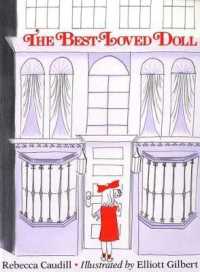Full Description
In company with its sister volume, Arts-Based Research Across Textual Media in Education explores arts-based approaches to research across media, including film and comics-related material, from a variety of geographic locations and across a range of subdisciplines within the field of education. This first volume takes a textual focus, capturing process, poetic, and dramaturgical approaches.
The authors aim to highlight some of the approaches that are not always centered in arts-based research. The contributors represent a variety of arts-based practices and methods, and they weave this marrying of artistic and scientific expertise and experience into the fabric of the chapters themselves. Authors from international contexts speak to the importance of utilizing artistic approaches for research processes. From multimodal field notes to poetic forms to the dramaturgical, chapters in this book represent steps forward in educational inquiry to bringing together both the creative and credible. The book includes multiple images and rich descriptions shared from the field. This first volume covers amongst other topics: co-created narratives, creative fiction in research, analytic portraits, dramatic representation, and critical poetic inquiry.
It would be suitable for graduate students and scholars interested in qualitative inquiry and arts-based methods, in education and the social sciences.
Contents
Introduction: An Expanding Visual Epistemology Section I: Capturing the Process 1. Rethinking Qualitative Data Analysis in a Co-creative Experimental Approach 2. Running the Numbers: Rich and Dense Everydayness Stories with Data 3. Art-Based Research as a Means for Trauma-Informed Inquiry 4. Humanizing and Multilingual Arts-Based Research Methods: Counter-stories of Refugee-background Students in Poland 5. Coding Visual-Based Data: Uncovering How Children Make Meaning Through Collage Section II: Dramaturgical Approaches to Data 6. A Dramaturgical Analysis and Representation of Latina/x Youth Artivist-Researchers and Their Transformational Resistance 7. How Do Lived Experiences Influence Teaching Philosophy Toward Diversity and Inclusivity in Fashion Design Education? 8. Our bodies have stories to tell: Applied theatre as embodied research method in the college classroom 9. Holding the Mirror Up to Nature: Exploring Dramatic Representation as a Method as /for Data Analysis Section III: Poetic and Literary Approaches 10. Poetic Transcription as Ephemeral Listening 11. A Call & Response Critical Poetic Inquiry Methodology 12. The Teacher's Desk: Re-imagining Reflexive Professional Practice in Education








